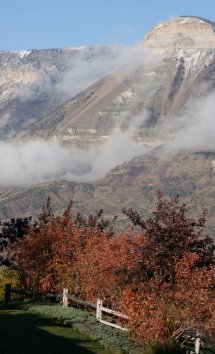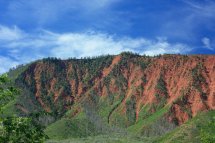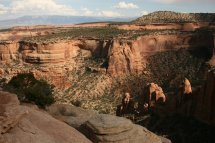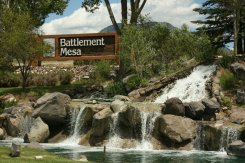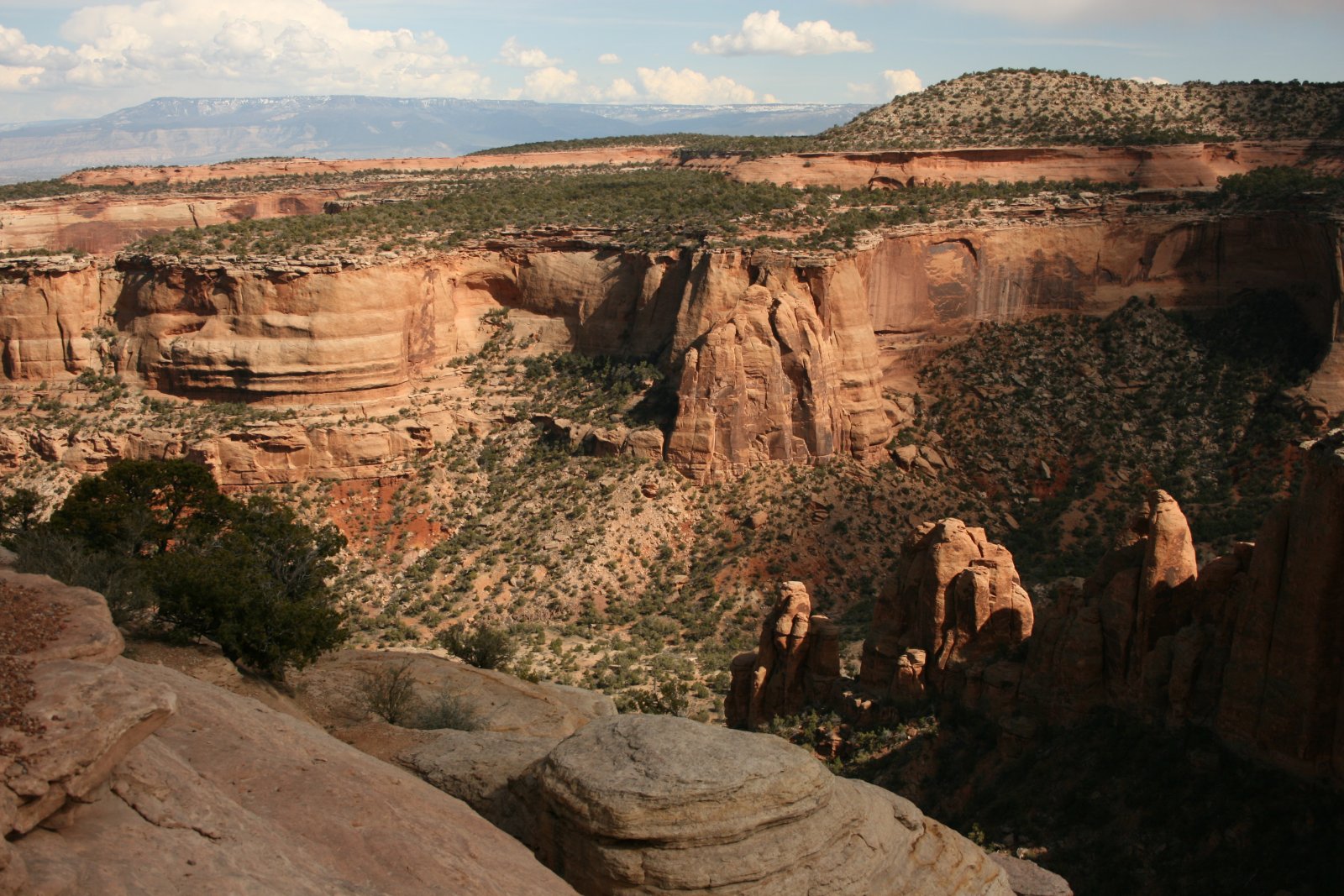
President's Message - June 2013
The Battlement Mesa Service Association President, Keith Lammey, writes a monthly article about Battlement Mesa. The article is published in the Grand Valley Echo. The June 2013 article, "Battlement Mesa’s Oil Shale History, Part Four," appears below.
In earlier segments of “Battlement Mesa’s Oil Shale History” the historical aspect and the impact of oil shale development in our area was examined. Part four of this series shifts the focus from looking at the history to looking at the future.
It is relatively easy to examine the past. In fact, it is easy to gather the bits and pieces of historical significance and tell the story of what has happened in an earlier period. Looking into the future is much more difficult. In part four, we will examine (not answer) the “what would another oil shale boom mean for us” issue.
Generally speaking, the residents of Battlement Mesa and Parachute aren’t convinced that another oil shale boom would be good for the two communities. If you own real estate here, odds are good that you’d say, “Maybe.” If you just moved here to escape the hustle and bustle of Chicago, Los Angeles or even Colorado’s Front Range, you’d say, “no thanks.”
I’d say, well it all depends.
As the BMSA President, I am eager to see our community grow and prosper. As an owner/resident I have to add, but not at the expense of our quality of life.
On the surface, the statement, “I am eager to see our community grow and prosper but not at the expense of our quality of life” seems reasonably straight-forward and uncomplicated. Most of us were raised to believe in prosperity; the American Dream. If more people seek what we already have, then we prosper. Isn’t it true that the standard advice on how to succeed in the stock market is “buy low; sell high?”
From the economic perspective, the buy low; sell high concept makes perfect sense. When quality of life is added to the equation the concept gets complicated. Sure, we all want to buy low and sell high but when we’re talking about the community where we live, we want to buy low, then enjoy a splendid quality of life and, probably, eventually sell high.
So, in order to form an opinion about whether or not another oil shale boom would be a good thing for us, we must answer a difficult question: “How would my quality of life be impacted by another oil shale boom?”
Even the experts can’t agree. Worse yet, they seem to be on opposite ends of the spectrum. Proponents seem to say that, with the in-situ processing technique, you will hardly notice that we’re here. Environmentalist say that the in-situ process is unproven and that, even if it is possible, it uses far too much energy to produce the energy that can be extracted from oil shale and, they add, plus there are a lot of environmental consequences.
AMSO, Chevron, Exxon-Mobil and Shell are still actively pursuing oil shale projects. These four projects utilize the in-situ process. The project’s successes, challenges and failures are generally considered “corporate secrets” thus we are unable to acquire adequate information in order to conclude which, if any, of the four projects could be successful.
On the opposite end of the spectrum, it is difficult to judge the impact of environmental concerns. In terms of actual years, the span between the last Battlement Mesa oil shale boom and present day is a mere 30 years. In contrast, in terms of where our society has moved in terms of protecting our environment, the gap is much more dramatic. Today’s oil shale projects must comply with strict regulations. Federal environmental laws include: the Clean Air Act; the Clean Water Act; the Safe Drinking Water Act; the National Environmental Policy Act (NEPA); National Historic Preservation Act; and the Resource Conservation and Recovery Act, plus several more.
In short, I believe that it all depends on how oil shale development would impact our quality of life. Unfortunately, it is impossible to know whether or not oil shale can be extracted in a manner that has minimal impact on our quality of life. Finally, I am intrigued by the biggest wild card of all: What future political event would drive oil shale development forward regardless of its impact on our quality of life.
Virginia City, Montana had a revival of sorts. In 1898, after an estimated (in today’s dollars) $40,000,000,000 worth of gold had been extracted from the Alder Gulch area around Virginia City, a mechanical marvel – the mining dredge – arrived in the area to extract even more gold. After several more years, Virginia City’s gold rush ended for good and, without its colorful history and tourism, Virginia City, Montana would have become a ghost town.
One of the differences between the Virginia City story and the Battlement Mesa story is that, unlike Virginia City, the natural resource that created Battlement Mesa’s brief but robust activity hasn’t been exhausted. The gold is gone from Virginia City’s Alder Gulch but our area is still “rich” with oil shale.
In fact, the Green River Formation in Colorado, Utah and Wyoming is estimated to contain up to 4.2 trillion barrels of oil based on an average of 15 gallons of oil per ton. The richest and thickest known oil shale resource in the world is located in the Piceance Creek Basin of Colorado which is estimated to have 1.52 trillion barrels of the estimated 4.2 trillion barrels contained in the Green River Formation. 1.52 trillion barrels seems like a lot of oil, but how much is it, really? Experts say that it is between one and six times the total oil reserves of Saudi Arabia and significantly greater than the known U.S conventional oil reserves.
Experts can’t agree on whether or not there will be another oil shale boom? Nevertheless, since the Green River Formation’s oil shale is mostly untapped, the world’s conventional oil supply is flat or declining while alternative energy is perhaps decades in the future and several firms are continuing oil shale research, it is my belief that, as unlikely as it seems now, there could be another oil shale boom in our future.
The real unanswered question is “What would another oil shale boom mean for us?”
Click Here to read additional President's Message articles.

